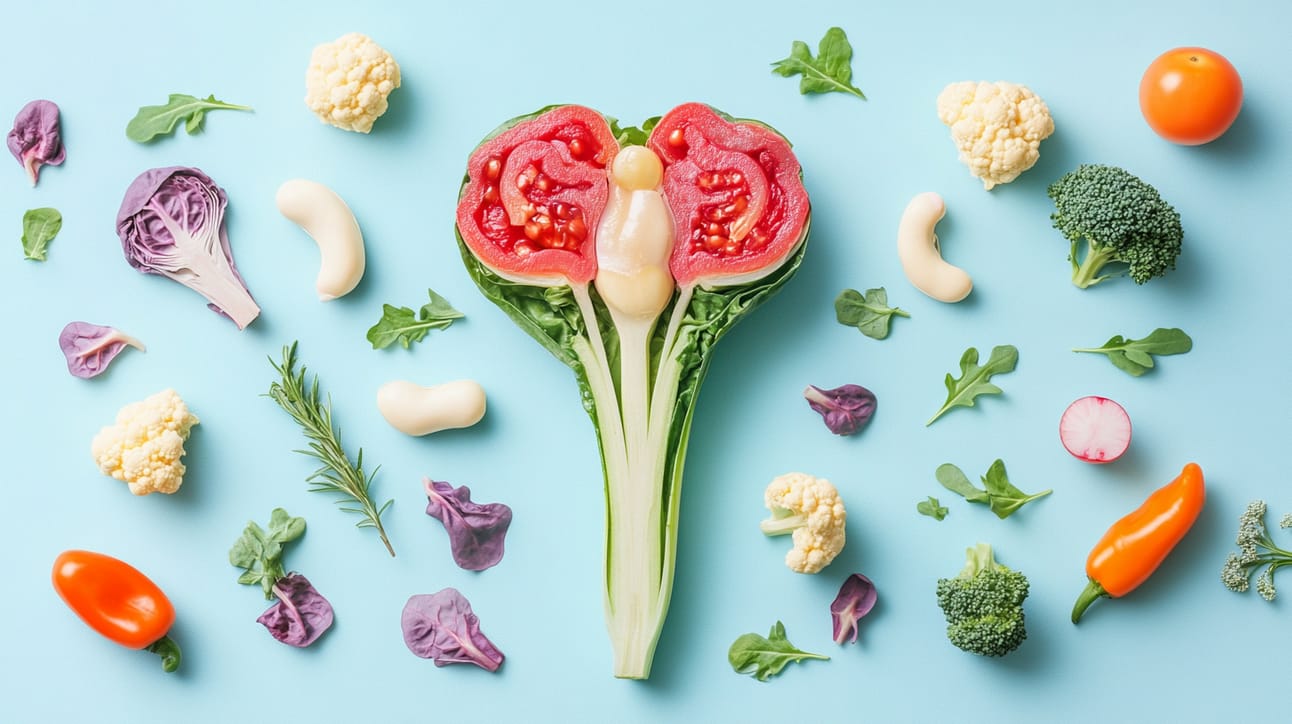- 40-something
- Posts
- Menstrual cycle explained: Hormones, symptoms, and nutrition.
Menstrual cycle explained: Hormones, symptoms, and nutrition.
A simple guide to understanding the four phases and the foods you need to eat.

The menstrual cycle is a natural process that prepares a woman’s body for pregnancy. It usually lasts around 28 days but can range from 21 to 35 days. The cycle is controlled by hormones that affect not only the reproductive system but also the brain, mood, appetite, skin, and more. Let’s break down the four phases, with tips on how to support your body during each one.

1. Menstrual phase (Day 1 to 5)
This is when menstruation (your period) occurs, marking the start of a new cycle. The uterus sheds its lining, which leaves the body as blood.
You might feel:
Fatigue
Cramps or bloating
Lower mood and irritability
Increased cravings for comfort foods
What’s happening With your hormones:
Levels of estrogen and progesterone are at their lowest, leading to lower energy and mood changes.
Nutritional needs:
Iron: To replace blood loss.
Foods: Spinach, lentils, red meat, fortified cereals.
Magnesium: To ease cramps.
Foods: Dark chocolate, almonds, bananas.
Hydration: To combat bloating.
2. Follicular phase (Day 6 to 13)
During this phase, the body prepares for ovulation. Follicles (which contain eggs) develop in the ovaries, stimulated by rising estrogen levels.
You might feel:
Increased energy
Clearer skin
Improved mood, focus, and creativity
Stronger hair and nails
What’s happening with your hormones:
Estrogen rises, making you feel more vibrant and confident. This hormone boosts memory, speech, and skin elasticity.
Nutritional needs:
Protein: For tissue repair and energy.
Foods: Eggs, chicken, fish, tofu.
Omega-3s: For brain and skin health.
Foods: Salmon, chia seeds, walnuts.
Leafy greens: To balance hormones naturally.
3. Ovulatory phase (Day 14 to 16)
Ovulation is when an egg is released from the ovary, making this the most fertile time in the cycle.
You might feel:
Peak energy and libido
Glowing skin
Increased sociability
What’s happening with your hormones:
Estrogen peaks, and luteinising hormone (LH) surges, triggering ovulation. Testosterone may also increase, enhancing confidence and sex drive.
Nutritional needs:
Antioxidants: To protect egg health.
Foods: Berries, green tea, broccoli.
Zinc: To support fertility and immunity.
Foods: Pumpkin seeds, chickpeas, shellfish.
4. Luteal phase (Day 17 to 28)
After ovulation, the body prepares for a possible pregnancy. If fertilisation doesn’t occur, hormone levels drop, leading to menstruation.
You might feel:
PMS symptoms like mood swings, breast tenderness, or bloating
Cravings for sweets or carbs
Fatigue
What’s happening with your hormones:
Progesterone rises to support a potential pregnancy, which can cause a calming effect but might also lead to irritability and sluggishness. As progesterone drops toward the end of this phase, PMS symptoms can intensify.
Nutritional needs:
Vitamin B6: To reduce PMS symptoms.
Foods: Bananas, potatoes, sunflower seeds.
Complex carbs: To stabilise blood sugar and mood.
Foods: Whole grains, sweet potatoes, quinoa.
Calcium and Vitamin D: To ease cramps and improve mood.
Foods: Dairy products, fortified plant milk, leafy greens.
Hormonal influence on your body beyond the cycle
Appetite: Rises in the luteal phase due to progesterone.
Cognition: Estrogen enhances memory and multitasking during the follicular phase.
Skin: Clearer during the follicular phase, more prone to acne in the luteal phase.
Hair: Fuller and shinier during the follicular phase due to estrogen.
Mood: Estrogen boosts mood from days 6-16, while progesterone can make you feel more subdued or anxious after ovulation from days 17-28.
Understanding your menstrual cycle helps you support your body and mind, making each phase a little smoother and more empowering. No matter where you are in the month, you need to listen to your body, eat for hormonal balance, and remember that self-care is key, especially during your period when more rest is needed. After that, you’ll be able to take advantage of the energy surge in the follicular phase and show up at your best.
Remember: Balanced hormones = happy life
Umayya xx